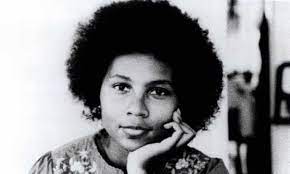hooks, bell

Bio: (1952-2021) American feminist theorist. bell hooks (her real name was Gloria Watkins, and she intentionally wrote her alias with lowercase letters) got her doctorate in literature from the University of California, Santa Cruz, where she also taught. hooks also taught at Yale and Stanford Universities. hooks is best known for her contributions to multiracial feminist theory and the creation of "engaged pedagogy."
hooks created a feminist theory based on her own experience as an African-American woman. She explores how the combination of sexism and racism has marginalized black women. She called the system she was fighting "the imperialist white supremacist capitalist patriarchy." However, she is also critical of other feminists, because they overlook the importance of the influence of racial and class origin on the social position of women.
She advocates the construction of “radical black subjectivity”, which occurs when a person begins to understand how the interconnectedness of the structures of domination that affect her works. Black radical subjectivity is created by using fluid patterns that have emerged from the life experience of the black woman and her community. Language is very important for defining oneself and confirming experience. The language is a place of resistance and struggle for black women. Traditional stereotypes attributed to white women are not suitable for explaining the experience of a black woman. hooks is the originator of engaged pedagogy, which is a cross-section of personal, political, and historical experience. Such pedagogy should explore the meanings and notions that popular media create about gender and race, but it should also be a place of resistance and risk-taking. The combination of personal experience, knowledge, ideas, and critical thinking creates the possibility that education becomes the basis for the emergence of liberating practices.
Fields of research
Capitalism Domination Freedom Gender Knowledge Language Media Patriarchy Pedagogy Prejudice Protests RaceTheoretical approaches
Feminism, Black (African-American)Main works
Ain’t I A Woman? Black Women and Feminism (1981);
Feminist Theory: from Margin to Center (1984);
Transgress: Education as the Practice of Freedom (1994);
Outlaw Culture: Resisting Representations (1994);
Feminism is for Everybody: Passionate Politics (2000a);
All About Love: New Visions (2000b);
We Real Cool: Black Men and Masculinity (2004);
Writing Beyond Race: Living Theory and Practice (2013).

